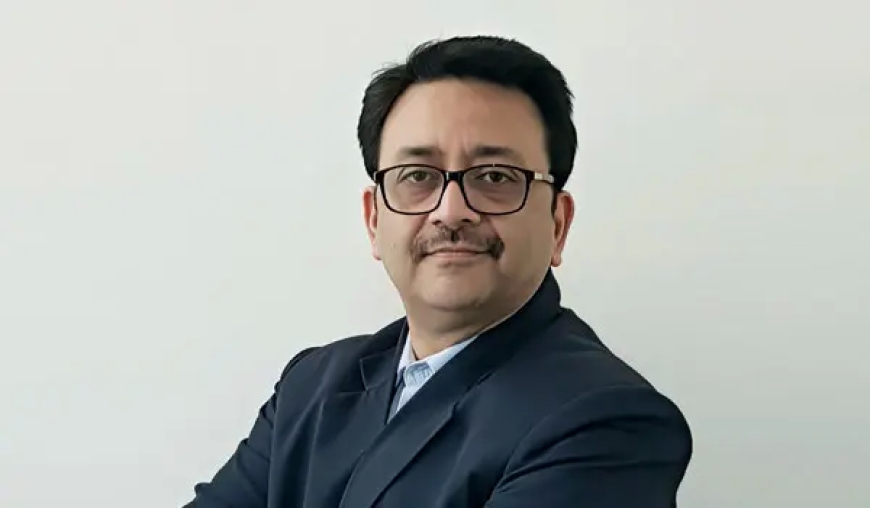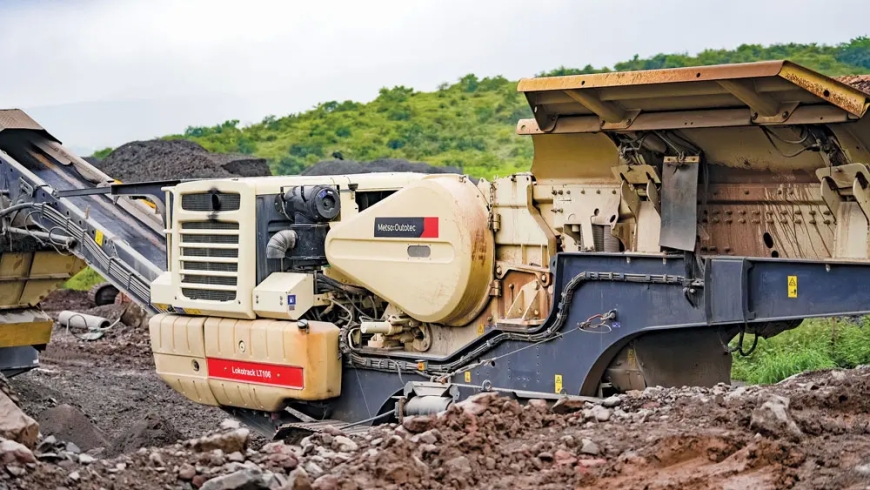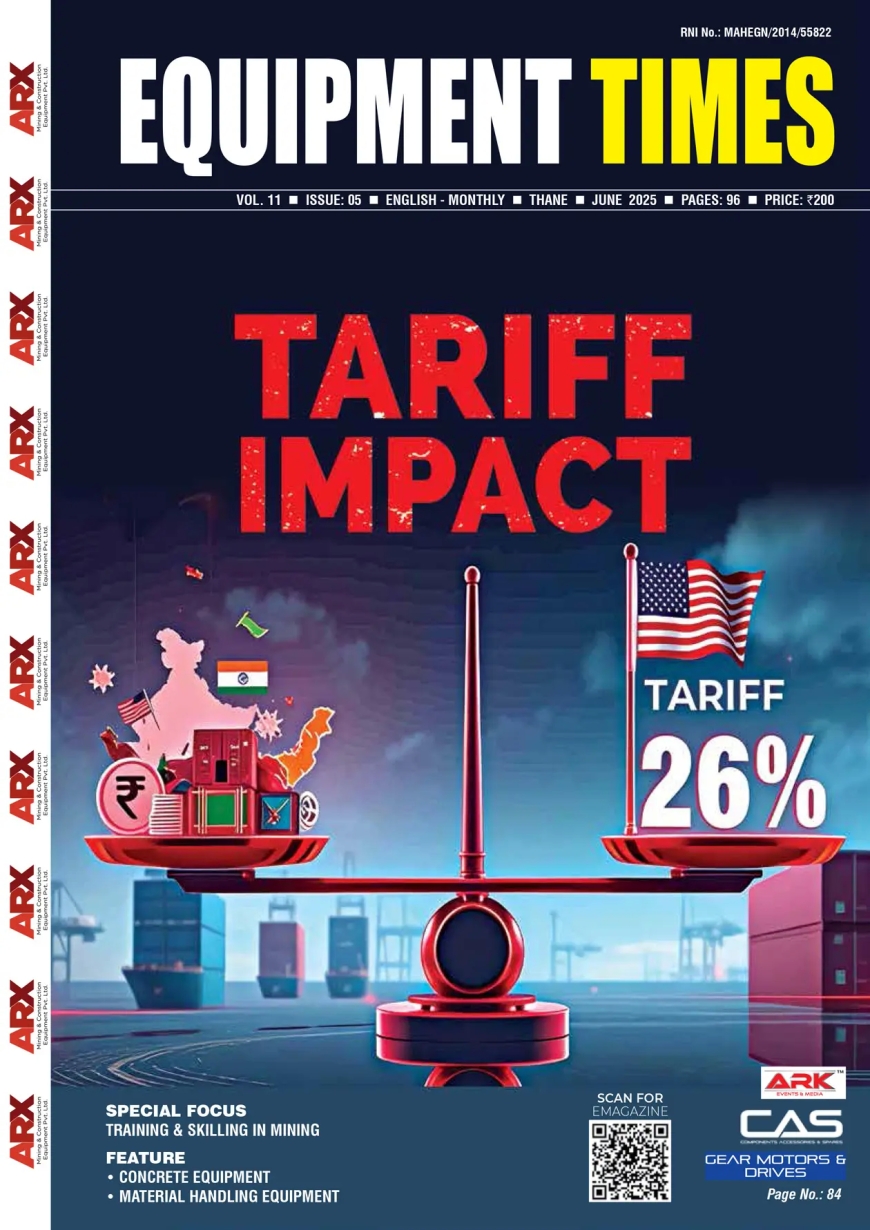Metso has made significant investments in structured, high-impact training through the Metso Academy.
Training and skilling are foundational to the mining equipment industry, as they directly impact safety, operational efficiency, and long-term sustainability.

Pavan Seth
VP, Sales & Service regions, Metso
How critical is training and skilling in today’s mining equipment industry? How has the approach towards workforce training evolved over the last few years?
Training and skilling are foundational to the mining equipment industry, as they directly impact safety, operational efficiency, and long-term sustainability. As the sector adopts advanced technologies—such as automation, remote monitoring, and predictive maintenance—it is crucial that the workforce evolves alongside. Equipment today is no longer just mechanical; it is increasingly embedded with smart diagnostics and digital interfaces that demand new competencies.
In India, mining has historically been manual-intensive, especially in coal, iron ore, and bauxite operations across both open-cast and underground environments. Over the last two decades, there has been a marked shift in mindset towards worker safety and upskilling. Companies have begun integrating structured training programs into their operational strategies, recognizing that skills are not finite but must continuously evolve. At Metso, we’ve witnessed this evolution first-hand, transitioning from traditional classroom-based training to blended learning solutions involving simulation, digital modules, and on-site mentorship.
Importantly, safety skills have gained prominence across the industry. Most mining companies now have dedicated safety departments with subst
antial budgets, and leading mining giants have pioneered best practices that are widely adopted. Safety training is now integral—not just for plant operations, but across logistics, erection, commissioning, and shift operations.
What are the key skill gaps you observe among operators, technicians, and maintenance teams handling mining equipment?
Despite the advancements, several skill gaps persist across operational roles. While technicians often have solid mechanical fundamentals, many struggle with digital literacy—particularly in areas such as software diagnostics, automation systems, and remote monitoring tools. The ability to interpret data from sensors or digital dashboards is still limited.

Another prominent gap is the focus on reactive or breakdown maintenance rather than predictive and preventive practices. International benchmarks emphasize proactive planning, but in India, shutdown planning and reliability-centred maintenance often fall short of global standards.
There is also a limited understanding of system-level operations. Many teams operate equipment in silos without fully grasping how individual machines interact across the broader process line. For example, a technician may excel at crusher maintenance but lack knowledge of how it affects downstream processes like grinding or flotation.
What are the major mining-related training and skilling initiatives undertaken by your company for your employees, operators, and customers? Kindly share details of any training centers, programs, partnerships, or certifications.
Metso has made significant investments in structured, high-impact training through the Metso Academy, which operates globally and is dedicated to competency development through immersive learning environments. Metso Academy is supported by over 50 specialists in learning design, instructional development, and digital learning systems.
Key highlights include:
• 10+ Global Training Facilities
• 12 Certified Global Trainers
• 300+ Flex Trainers and Subject Matter Experts
• 500+ Training Events Annually
• 4,000+ Participants Trained Yearly
Metso Academy also includes five specialized sub-academies, each focused on specific training domains:
• Technical Academy
• Sales and Business Academy
• People Academy
• Distributor Academy
• Customer Academy
Additionally, Metso offers globally recognized learning programs like the Global Service Certification, Sales Competence Development Program, and the Strategic Capabilities Program. These are designed to nurture long-term career growth and strategic business understanding.

Our training support extends beyond internal teams. Through Training as a Product (TaaP) services, we offer custom-designed customer training modules tailored to site-specific operational and safety needs. Topics include equipment operation, maintenance, efficiency optimization, and process safety—covering technologies such as crushing, grinding, flotation, pumps, thickening, automation, filtration, and smelting.
In India, we run monthly blended learning programs at customer sites and our Alwar facility. Participants are certified at three levels: Professional, Expert, and Master. One of our most appreciated initiatives has been the “Technical Talks” series, which fosters technical learning through industry-wide collaboration.
What innovative training methods (e.g., simulators, VR-based training, online modules, hands-on workshops) are you using to upskill personnel? How effective have these been?
Innovation is central to our skilling approach. Metso leverages:
• Virtual Reality (VR) for immersive training in complex tasks like crusher maintenance and mill relining.
• Simulators to replicate plant operations in a safe, controlled environment.
• Online Learning Portals, including Metso Metrics, for interactive, self-paced modules with real-time performance analytics.
These tools have shown strong results. At partner sites in Karnataka and Jharkhand, for instance, VR-based training significantly reduced onboarding time and helped lower safety incidents. Simulation-based learning enables trainees to experience real-time scenarios, helping bridge theoretical knowledge with practical application.
Additionally, when customers sign Long-Term Service Contracts (LCS) with Metso, upskilling of their workforce becomes part of our operational model, ensuring knowledge transfer and performance continuity.
What are the major challenges you face in implementing effective training programs in India? (e.g., geographic diversity, varying education levels, technological adoption, etc.)
India’s diversity presents both a rich opportunity and a logistical challenge for training delivery. The primary hurdles include:
• Geographic dispersion of mining sites, often in remote areas.
• Varying levels of educational background and prior technical exposure.
• Limited internet access, restricting the effectiveness of digital modules.
To overcome these, Metso localizes training content to suit different learner profiles. We provide multilingual content, mobile-compatible modules, and modular training formats that fit into shift schedules. This ensures accessibility and inclusivity, even in challenging environments.
How do you see the role of government initiatives (like Skill India Mission) and industry collaborations in enhancing skill development in the mining sector?
Government initiatives like the Skill India Mission have been pivotal in creating a structured ecosystem for vocational training. These frameworks help standardize skills across the sector and promote the employability of local talent in mining regions.
At Metso, we actively partner with government bodies and local institutions to align our programs with national skilling standards. We believe that collaboration between OEMs, customers, academia, and policymakers is essential to create a future-ready workforce. Our partnerships focus on co-developing curriculums, offering internship opportunities, and conducting joint skilling programs at the grassroots level.








